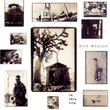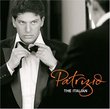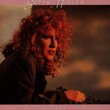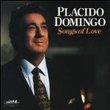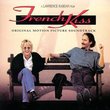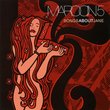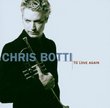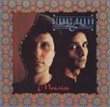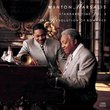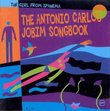| All Artists: Hot Club of San Francisco, David Grisman Title: Yerba Buena Bounce Members Wishing: 6 Total Copies: 0 Label: Reference Records Original Release Date: 1/1/2007 Re-Release Date: 3/13/2007 Genres: Jazz, Pop Style: Swing Jazz Number of Discs: 1 SwapaCD Credits: 1 UPC: 030911110925 |
Search - Hot Club of San Francisco, David Grisman :: Yerba Buena Bounce
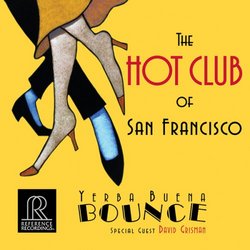 | Hot Club of San Francisco, David Grisman Yerba Buena Bounce Genres: Jazz, Pop
The Hot Club of San Francisco is a quintet of acoustic string virtuosos and one of the premier exponents of "gypsy jazz" inspired by Django Reinhardt's Hot Club of Paris. Special guest David Grisman, the world's best-kn... more » |
Larger Image |
CD DetailsSynopsis
Album Description The Hot Club of San Francisco is a quintet of acoustic string virtuosos and one of the premier exponents of "gypsy jazz" inspired by Django Reinhardt's Hot Club of Paris. Special guest David Grisman, the world's best-known mandolin player, has a huge following. Similarly Requested CDs
|
CD ReviewsGong Oh has arrived, and so has the Hot Club of San Francisc Shepherd Siegel | Seattle, WA USA | 04/07/2007 (5 out of 5 stars) "The reverence gypsy jazz musicians all feel for Django Reinhardt, the inventor and perfecter of the idiom, makes them step cautiously into innovation, and that has served the culture well...and the Hot Club of San Francisco has always had the tightest grip on what the authentic guts of the sound require. As the pre-eminent American gypsy jazz ensemble, HCSF triumphs with Yerba Buena Bounce, preserving that 1930's sound while propelling gypsy jazz well into the 21st century. On their 2005 release, Postcards from Gypsyland, the HCSF set new, high standards for themselves or anyone wishing to enter the game: in recording quality, professionalism, and fidelity to the gypsy jazz idiom, most curious because the geologic pace of its evolution that never seems to detract from its endless energy. If Postcards set out to impress, Yerba Buena Bounce finds the group even more comfortable in their musical skins; it's more a session where they found great material and arrangements and decided to just have some fun, play great. The result is music that impresses even more. Paul "Pazzo" Mehling, the founder and leader, sticks to what has always worked well before, and concentrated on doing it better than he ever has: four Django tunes, and classics from Bechet, Carmichael, Lester Young, Lennon/McCartney, and as always, some sparkling originals. Reinhardt's Mystery Pacific, the opener, draws you into the fun and magical space of gypsy jazz freedom, impeccably recorded, authentically reproduced. On the Beatle's I'm Happy Just To Dance With You (yes, the only Lennon/McCartney tune sung by George!), the melody is re-phrased to fit the Hot Club's mien, but HCSF enhances and deepens the original sentiment, treating it not just as a melody, but capturing the whole romance of the early Beatles, and breathing new life into an old tune that makes this more than a reminiscence. Sway is one of two tunes that feature David Grisman on mandolin, and Pazzo's solo has an exceptional quote from Suicide is Painless, that is simultaneously hilarious and sublime. Grisman returns, along with Seth Asarno on bandoneon for Pazzo's 'Lullabye,' to which they both bring a delicate, tender touch. Of course, the whole band swings from head to toe, but shout outs must go to Evan `Zeppo' Price, whose violin playing consistently takes tuneful flight, yet is always locked in to the the ensemble rhythm...this is great jazz playing. On Tickle Toe, his playing and the SOUND evoke the great Duke Ellington Jazz Violin Session with Ray Nance, Svend Asmussen, and Stephane Grappelli . Reinhardt/Grappelli's 'Black and White' features the quintessential Pazzo solo, where one of Reinhardt's arpeggio techniques, usually used for a three or four bar flourish, is taken to delightful extremes for what seems like an entire chorus. And the recording: the combination of Reference Recordings persnickety microphone technique and the underground chambers of the Fantasy recording studios in Berkeley worked like a charm. While audiophile recordings will often obsess on brilliance and clarity to the point of sterility, the recording on this album is transcendently natural. The instruments sound, not crystalline and clean, but like MUSIC, with all the warmth left in and nothing in between. The naturalness of the sound occupies that sublime and elusive middle ground between the technical advantages of a studio and the warmth of a live recording. There's plenty more to enjoy here, from the heebie jeebies of 'Rhythme Futur,' the jamming of 'Borneo,' Pazzo's gorgeous reading of Django's 'Improvisation #2' that closes the set, and an absolutely amazing bonus cut, Paulo Conte's 'Gong Oh,' that will have you reaching for your absinthe and cigar, bumping up with the great gypsy culture that has blessed us with a unique jazz form that only grows more enduring and more exciting, due in no small part to the raucous, sweet-tight sounds of the Hot Club of San Francisco." Sure-fire album by the Hot Club of San Francisco Dr. Valdo Herby | Southern Oregon | 04/12/2007 (5 out of 5 stars) ""Yerba Buena Bounce," the newest album by Paul Mehling's Hot Club of San Francisco, really stunned me, though I have long been aware of this fine band. This album is a must for any fan of Gypsy jazz, or of "old jazz" in general. It has the right spirit, great execution, and vibrant recording methods. First, the acoustics generated at legendary Fantasy Studios are as good as it gets. One feels throughout that he's seated right before a live bank of hot guitars playing in perfect unison, as in the old Parisian haunts of Django Reinhardt and Stephane Grappelli. You've got to hear the sound of the guitar wall on "Tickle Toe" and the brightness of the horns played by friends who sat in for "Some of These Days." Paul Mehling has always had a classic "Django band," with his lead guitar, two accompanying guitars, a solo violin, and bass. Though he has tweaked the band a bit in the past twenty years or so, this classic format has usually prevailed and it reaches its zenith in this recording. Paul's own playing is superb as he romps over some of the brisker and more difficult Django tunes, like "Mystery Pacific," "Rythme futur," and "Black and White." Evan Price's viloin lead on Pres' "Tickle Toe" is superb, and just when you think it can't get get any better than that, he launches into a swinging chorus or two of "Black and White." Evan has been a stalwart in Paul's band for a long time, bowing with a boppish flair that just ain't that easy on violin. And for fans of the double bass, Ari Monkres is a never-fail chord-keeper who gets an overdue break on "Stardust," where he takes the lead. There are two tunes on the CD that seem to me inherently infelicitous, Dean Martin's saw "Sway (With Me)" and Henry Busse's "Hot Lips," yet the Hot Club makes good sense out of them. I would have said that "Hot Lips"--much like Clyde McCoy's "Sugar Blues"--was a one-man, one-band, one-time song. Yet played by this solid band, "Hot Lips" bobs along, sort of an upside-down "J'Attendrai," which HCSF has in fact recorded elsewhere. With the addition of Dave Grisman's mandolin, the minor chord sequences on "Sway" sound as if they they emanate from a Gypsy camp. Leader Mehling is a fine composer. On this CD, his "Number Two" and "Lullabye" are really noteworthy. "Number Two" is a typical Paul, where the tempo is brisk and there are lots of surprises, as in stops and starts and changes from minor to major. "Lullabye" represent's Paul's other side: a lovely, wistful ballad on a par with his earlier "Giselle." Paul sings on "Some of these Days," and is in fine, humorous form on Paolo Conte's "Gong Oh." Speed and instrumental tours de force seem to be the sine qua non of most Gypsy bands. And that is here. But what always impresses me with Paul's band is that everyone plays with good tone quality and intonation. This album ain't no dog. In fact it is four paws up--and a tail and a muzzle. And a swooping canine bow to the grooving rhythm guitarists! " Review by Ken Dryden, All Music Guide Paul Mehling | SF, CA | 05/10/2007 (5 out of 5 stars) "Review by Ken Dryden, All Music Guide
The Hot Club of San Francisco is more than a tribute band re-creating the recordings of Django Reinhardt, Stéphane Grappelli and the Quintette du Hot Club de France; the group covers pieces from many different eras never performed by the group which inspired them. On their tenth CD, Yerba Buena Bounce, the Hot Club of San Francisco, which has identical instrumentation to the French group (lead guitar, violin, two rhythm guitars and a bass), leader Paul Mehling, violinist Evan Price and the rhythm section swing like mad in their updated treatment of the QHCF's speeding locomotive represented by "Mystery Pacific" and the brisk, chugging "Black and White." But they also successfully convert modern pop songs into gypsy swing material, such as the Beatles' ballad "I'm Happy Just to Dance with You" (adding Seth Asarnow on bandoneon) and Norman Gimbel's "Sway" (which adds mandolin master David Grisman). Mehling proves himself as a composer as well, contributing the upbeat "Number Two" and the tender "Lullaby" (the latter adding both Asarnow and Grisman). If that's not enough, Mehling adds campy vocals to "Gong Oh" and "Some of These Days." Fans of Django Reinhardt and Stéphane Grappelli owe it to themselves to investigate these swinging, beautifully recorded sessions by the Hot Club of San Francisco; gypsy swing is very much alive in their hands!" |

 Track Listings (17) - Disc #1
Track Listings (17) - Disc #1